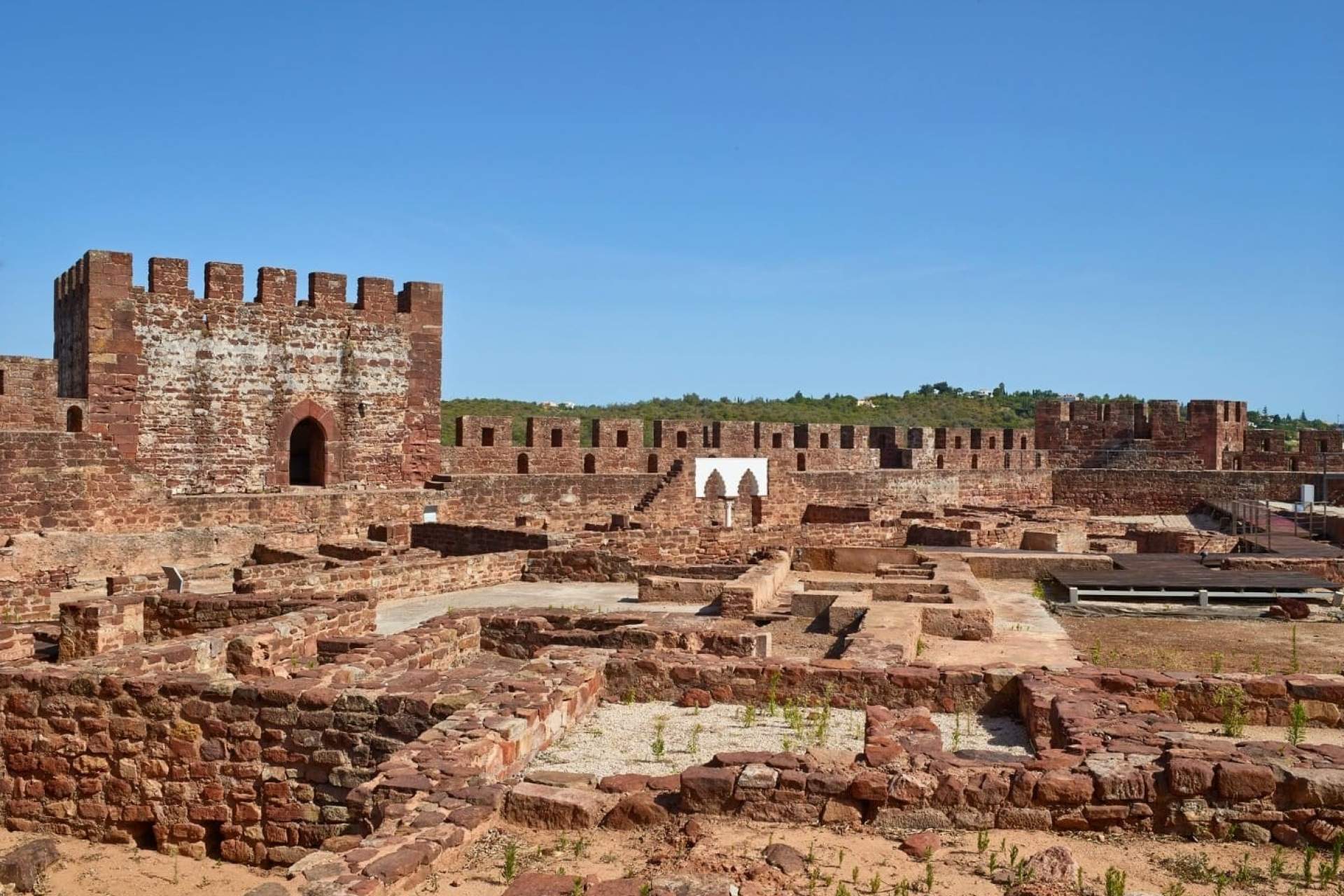
Eight centuries of coexistence between Muslims, Jews and Christians left a deep mark on Portugal and its inhabitants, in literature, art, astronomy, geography, medicine, gastronomy, festivals, traditions, legends and customs, so that the Islamic legacy remains alive and waiting for you to visit and experience it.
In the 8th century, the territory of the Iberian Peninsula was occupied by the Muslims. This territory, which surface area varied over the centuries, took the Arabic name of Al Andaluz. This prosperous medieval Muslim civilisation embraced most of the present-day Portuguese and Spanish territories, a situation which lasted until its fall at the end of the 15th century.
Until 756, Al Andaluz was dependent on the Umayyad Caliphate of Damascus. The overthrow of the Umayyad dynasty and the installation of the new lords of Islam, the Abbasids, in Baghdad, led to the arrival of the only survivor of the Umayyad massacre to the Peninsula in 756, settling in Cordoba (Spain), where he named himself Emir. In 929, the then emir proclaimed himself Caliph, declaring himself independent of the Caliphate of Baghdad. Until 1031 the Caliphate of Cordoba corresponds to the period of greatest Islamic splendour in the Iberian Peninsula.
Throughout the 12th century, the Christians would accentuate the character of Holy War to the fight for the conquest of the territories under Muslim rule. In 1145, the Almohad dynasty sent an army to the Iberian Peninsula and conquered Al Andaluz.
But the progressive settlement of the Christian kingdoms to the North brought the border of Garb Al Andaluz to the Tagus River (Portugal), with the conquest of Lisbon and Santarém in 1147 by the new Christian monarch, Afonso Henriques, the 1st King of Portugal.
The Almohads' advance was halted in 1212, at the Battle of Navas de Tolosa, where the Portuguese army fought alongside the Kingdoms of Leon, Castile, Aragon and Navarre (now Spain).
The Kingdom of Portugal continued its conquest of Garb Al Andaluz, taking the cities of Moura and Serpa in 1232, Beja and Aljustrel in 1243 and Mértola in 1238, until the Portuguese King Afonso III definitively conquered the Algarve in 1249.
In the Kingdom of Portugal and the Algarve, where the monarchs lacked people to populate the conquered territories, the Muslim and Jewish communities were given privileged status and special protection. But the 4th Council of the Lateran (1215) imposed a delimitation between the Christian community and the other religious minorities, ordering Muslims and Jews to live separately in the Mourarias (Muslim Quarters) and Judiarias (Jewish Quarters).
The Muslim presence in Portugal ended in 1497, with King Manuel I's Edict of Expulsion of the Jews and Moors from Portugal. This decreed, forever, the expulsion of the two religious minorities to whom the Kingdom owed so much.
The Islamic heritage in Portugal has left decisive marks on the country's development over time. Great figures of Al Andaluz had a deep connection to Portugal, such as Al-Mutamid, the poet king born in Beja, who became king of the Taifa of Seville; Ibn Qasi, a native of Silves, who rose to power in the most important cities of the Garb at the time, Mértola and Silves, and whose temporary alliance with King Afonso Henriques allowed opposition to the Almoravids; Ibn Ammar, poet born in Algarve region, who became vizier in Seville; Ibn Muqana, important Arab poet born in Alcabideche.
Time has erased the marks of the Islamic presence but traces of the Muslims have remained throughout the country, from architecture to town planning, toponymy, language, culture and legends. The enchanted Moors are one of the most dazzling examples of popular Portuguese sentimentality, rooted in the Islamic legacy.
There are countless places that combine history and heritage rich in memories evoking the Islamic presence and which give Portugal a distinctive identity to enjoy the mystique of Al Andaluz, which we invite you to discover.
In northern Portugal, the city of Lamego and the vault of the son of Almanzor in the Cathedral of Braga’s Treasury bear witness to this presence. Witness the Islamic civilisation's contribution to medicine at the Pharmacy Museum in Porto.
In the centre of the country, we invite you to discover the remains of the Islamic legacy in Coimbra, Idanha-a-Velha, Alenquer and Trancoso, and the Mozarabic testimonies of the Church of São Pedro de Lourosa and the Monastery of Lorvão.
In the Lisbon region, the largest city in the Garb, discover the St. George Castle, the remains of the Moorish Wall, the Castle of the Moors in Sintra, the Arabic Tile and Ethnography Museum in Almada and the Palmela Castle.
Further south, which is more Islamised and where the traces are therefore more evident, visit, in Alentejo, the town-museum of Mértola, and the towns of Beja, Évora, Moura, Serpa, Alandroal, Juromenha, Alcácer do Sal and, in Ribatejo, Santarém.
In the Algarve, the cities of Silves, Faro, Tavira and Loulé were particularly important in the Garb Al Andaluz, but other points in the region deserve special mention, such as Alcoutim, Cacela-a-Velha, Aljezur, Albufeira and Alvor.
Discover also the al-Mutamid Route, following the life journey of King al-Mutamid, on a route that goes from Lisbon to Seville. Itinerary integrated in the Routes of the Andalusian Legacy, Cultural Itinerary of the Council of Europe, which revives the literature, art, science, gastronomy, festivals and traditions of the Al Andaluz, based on historical facts representative of the cultural importance of the civilisation that for almost eight centuries shone in the fields of culture, arts and sciences.
Let yourself dive in the experiences of this important period in the formation of Portugal through the virtual exhibition "WARRIORS AND MARTYRS Christianity and Islam in the Formation of Portugal" - to enter just click HERE.
No results were found matching your search.

Close
Search results for:
No results were found matching your search.
Information available soon.


